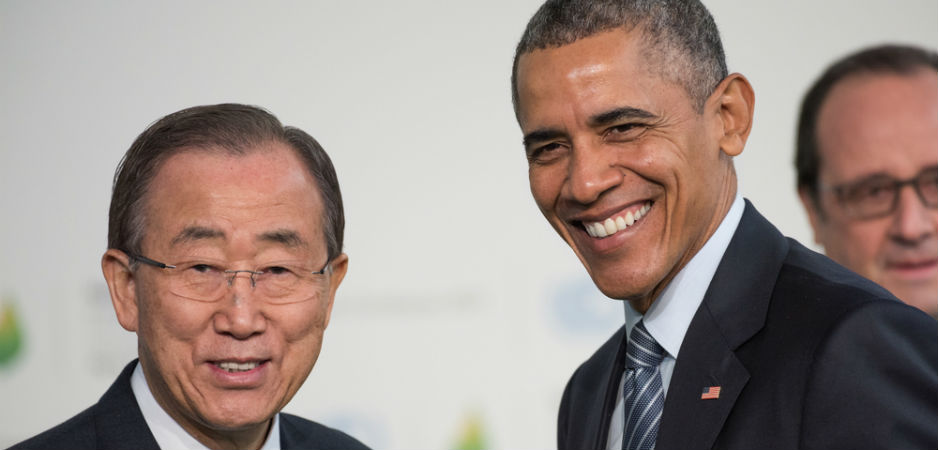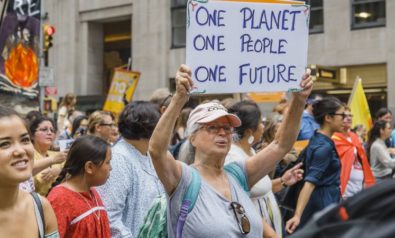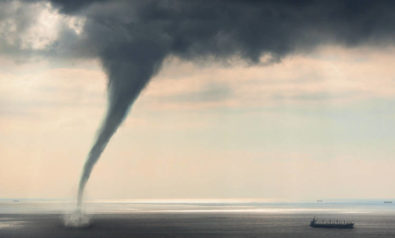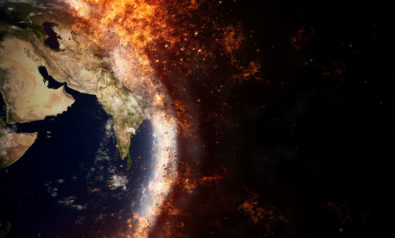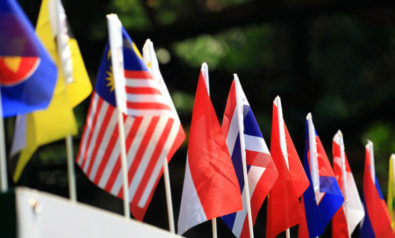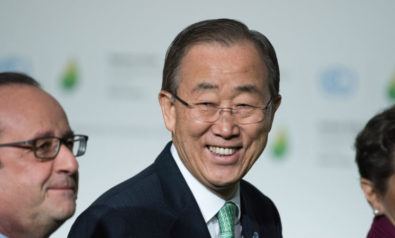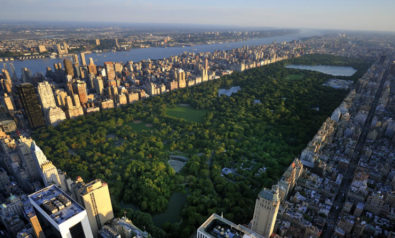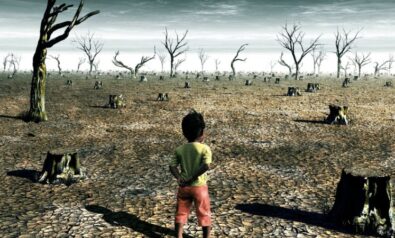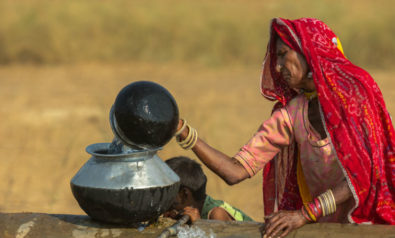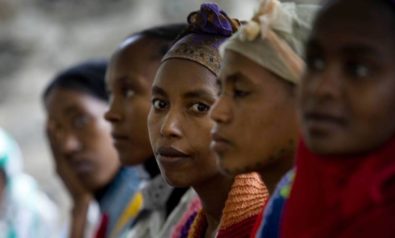COP21 has ended with a deal, but the treaty will only stick if the rich in general and the US in particular lead by example and make painful sacrifices.
The 2015 Paris Climate Conference, or COP21 as it is otherwise known, has come to an end. The BBC says that a landmark deal has been agreed upon. Nearly 200 countries have agreed to cut emissions by 2020 that would limit global warming to “well below” 2 degrees Celsius. But will the treaty end up like the Rio Convention of 1992, a document of pious homilies that is conveniently ignored, once people leave Paris? Lest we forget, the Kyoto Protocol was never ratified by the US, and Canada withdrew from it in December 2012.
A QUESTION OF JUSTICE
Most educated people now recognize that climate change is dramatic and dangerous. Yet most are wedded to wanton consumption in their daily lives. Americans are a classic example. Their gas guzzling cars, manicured golf courses and factory farms are wrecking the environment. The American love of ever more stuff can be seen at Walmart or on Amazon. It keeps Chinese factories chugging away and increases toxic emissions. This makes the world warmer and might put places like Bangladesh and the Maldives under water. The poor and the marginalized suffer disproportionately from climate change. Is this just?
One view is that climate change is what it is. Some people are simply not bright, tough and lucky enough to make it. In the past, Native Americans and Aboriginal Australians lost their land, livelihoods and their lives because they could not adapt to changing circumstances. They were the human equivalent of dinosaurs. White settlers had superior technology and organization if not better genetics or religion. Now, it is the turn of Bangladeshis, Sudanese and others to fall by the wayside.
Another view is that climate change is clear and present danger. An overwhelming majority at COP21 shared this view. Doing something about it becomes tricky because there is a fundamental contradiction in the way we live. We want to have our cake and eat it too. Wealthy countries became rich by using fossil fuels to power their economic growth. Others now want to do the same. To curb climate change, at least one of two things needs to change. Either demand for energy goes down or supply of energy becomes cleaner. How do we achieve either without tackling questions of justice?
For instance, should villagers in India or Malawi live without electricity or should Americans consume less of it? If electricity is essential to modern life, then should poor countries build coal-fired power plants? Should Americans build more public transport, use less gas guzzlers and drive less? Similarly, should the Chinese stop buying cars? If Bangladeshis suffer, who is responsible? Is it the Americans or the Chinese or others? When flooding occurs, where do refugees go? Do they deserve compensation, and if so, by whom?
A small percentage of the global population is responsible for most of the climate change. More importantly, it causes unequal burdens. The poor end up paying for the sins of the rich. A response requires sacrifice. Who bears that sacrifice and how is a matter of ferocious debate. Climate justice is quite simply an issue of fairness. How does the human family of over 7 billion distribute the burdens and share the sacrifices of dealing with climate change somewhat fairly?
ECONOMIC GROWTH vs ENVIRONMENTAL CONSERVATION
Right from the dawn of civilization, human beings have had an adverse impact on the environment. As long as we lived as tribes in forests, grasslands, deserts or snowy expanses, our social organizations were largely equal and our environmental footprint negligible. Settled agriculture led to complex hierarchical societies where elites appropriated surpluses, patronized art and built impressive edifices. Even the hallowed Athenian democracy flourished on the backs of slaves.
Over time, wild landscapes have given way to farms, towns and cities. This process has increased exponentially since the Industrial Revolution. In China, the biggest and fastest industrialization in human history has taken place in barely three decades. It turns out that human beings are infernally clever apes with insatiable needs and wants. They have been plundering and pillaging the planet with gay abandon for far too long.
Over the last few years, the impact of human action is starkly visible and climate change is causing unease if not dread or foreboding. The Rio Convention of 1992, better known as Earth Summit, achieved precious little for a very simple reason. From 1991, a new zeitgeist dominated the world. The Soviet Union had collapsed. The American economic model with its cars, malls and golf courses was on the ascendant. Harvard and Hollywood came to dominate the global cultural imagination.
It turns out there is a slight wrinkle. Economic growth of the modern era is only possible through devastating environmental damage. In the headlong chase for wealth since 1991, no one has cared much for the environment. American consumers want cheaper stuff at Walmart. Chinese factory owners are eager to sell to Walmart. Investors want to maximize their returns. If this means open pit mining of gold that wrecks the landscape and ecological balance, then so be it.
In 1991, even socialist strongholds and Soviet allies like India capitulated to the International Monetary Fund (IMF). In 1992, Deng Xiaoping doubled down on his 1978 bet to embrace markets. After Nanxun, his post-Soviet Union southern tour, he called for radical reform and the opening up of the Chinese economy. China has experienced rapid rates of economic growth since. It is now the workshop of the world and a hell of a lot richer than it was in 1992. The same is true for many Asian countries.
Details of the Paris deal are emerging, but the treaty will go the way of the Kyoto Protocol unless there is a change of culture and a shift in consciousness. If everyone uses the same amount of toilet paper as the Americans, there will be no trees left on the planet.
Obviously, this has come at a huge cost. Earlier this year, Indonesian forest fires generated more emissions per day than the US. Far too many species have gone extinct and emissions continue to rise. Floods, hurricanes, fires, droughts and other extreme weather conditions indicate that cataclysmic climatic conditions might not be that far off into the future. Yet our economic model is still based on the idea that human wellbeing is best captured by increasing growth. Ironically, Simon Kuznets, the pioneer who made calculation of growth possible, observed that “the welfare of a nation can scarcely be inferred from a measure of national income.” He went on to say that it was essential to distinguish “between quantity and quality of growth, between costs and returns, and between the short and long run. Goals for more growth should specify more growth of what and for what.”
TO BE RICH IS GLORIOUS
Details of the Paris deal are emerging, but the treaty will go the way of the Kyoto Protocol unless there is a change of culture and a shift in consciousness. If everyone uses the same amount of toilet paper as the Americans, there will be no trees left on the planet. If everyone buys the same amount of stuff as Uncle Sam’s covetous inhabitants, open pit mining would increase exponentially, factories will belch more smoke into the atmosphere and effluents would be released into already fragile water systems. Similarly, industrialized food production of the kind that has been recently captured in a gruesome video of dairy farming in New Zealand has to end. It is cruel, gratuitously violent and terrible for the environment.
Truth be told, Americans have to jettison their economic model that is not only causing greater pollution, but also increasing inequality. A small number of people control an overwhelmingly large share of America’s wealth. It is little surprise that US presidential elections are a circus that cost a packet and are increasingly a racket. The New York Times recently reported that “just 158 families have provided nearly half of the early money for the efforts to capture the White House.”
The rich in other countries are aping their American counterparts. Russian oligarchs live lavish lives and buy assets like Chelsea Football Club. India’s super rich lives in medieval-era opulence, and the richest man in the country has built a billion-dollar home. China’s nouveau riche has an insatiable appetite for real estate in places like London and luxury brands like Gucci.
The robber baron capitalism of these countries has often led to nepotistic privatization of public wealth. A culture of consumption has developed, and the new rich are threatening to outdo their American counterparts with the typically fervent zeal of new converts. Disillusioned by socialism and communism, consumption is the new mantra in these lands. This zeitgeist is best captured by an iconic phrase used by a young Chinese woman to shoot down a poor suitor: “I would rather cry in a BMW than smile on a bicycle.”
NO MACHINE GUN BACON
It is a tragedy that much of the world is aspiring to lead lives like the Americans. McDonald’s and Coca Cola represent a culture of mass consumption and provide a buy one get one free deal of heart attacks and diabetes. Besides, they are crude fare, lacking the taste or sophistication of cuisines with centuries of tradition and a connection with what the French call terroir. The time has come for the rich in general and the Americans in particular to become more frugal. They have made the biggest contributions to climate change, and they now need to make the sacrifice if the Paris deal is to stick.
US President Barack Obama gave a typically rousing speech at COP21. Yet the US Congress that works ceaselessly to undercut him has already passed two resolutions against Obama’s new rules to limit emissions by coal-fired power plants. These resolutions aim to keep the US competitive in a fragile global economy by keeping the cost of energy low.
Others want to emulate the rich world and pursue economic growth through cheap energy. Before COP21, Arvind Subramanian, India’s chief economic advisor, came out with guns blazing against “the rich world’s move against fossil fuels.” Already, India, China and other emerging economies are uncomfortable with many provisions of the climate deal. Americans could do well to remember that when rich white men jump up and down in woolen underwear waving their arms in alarm about the environment, others wonder if this is a cynical move to keep poor countries down. Few in the non-white world forget that after the first Thanksgiving, Native Americans or “Indians” were slaughtered even more than the turkeys.
Obama’s enemies like Republican presidential candidate Ted Cruz do not help. The wonderful video in which he “cooks” bacon makes even the English with a penchant for porky breakfasts queasy. Cheap mass produced bacon from a dehumanized supermarket is rolled on the barrel of a machine gun covered with tin foil. Cruz then proceeds to fire the machine gun at a target until it is piping hot and the bacon is cooked. He then proceeds to eat this bacon with relish.
The Paris deal will stick only if it is seen as just. The world’s dominant superpower and richest nation has to create new technologies that are cleaner but also by sharing them with others. Climate justice demands that the US changes its insane culture of revoltingly wasteful consumption. This will entail painful sacrifices, however, the US has no choice but to lead by example. The time has come for Uncle Sam to give up machine gun bacon.
The views expressed in this article are the author’s own and do not necessarily reflect Fair Observer’s editorial policy.
Photo Credit: Frederic Legrand – COMEO / Ryan Rodrick Beiler / Shutterstock.com
 We bring you perspectives from around the world. Help us to inform and educate. Your donation is tax-deductible. Join over 400 people to become a donor or you could choose to be a sponsor.
We bring you perspectives from around the world. Help us to inform and educate. Your donation is tax-deductible. Join over 400 people to become a donor or you could choose to be a sponsor.
Support Fair Observer
We rely on your support for our independence, diversity and quality.
For more than 10 years, Fair Observer has been free, fair and independent. No billionaire owns us, no advertisers control us. We are a reader-supported nonprofit. Unlike many other publications, we keep our content free for readers regardless of where they live or whether they can afford to pay. We have no paywalls and no ads.
In the post-truth era of fake news, echo chambers and filter bubbles, we publish a plurality of perspectives from around the world. Anyone can publish with us, but everyone goes through a rigorous editorial process. So, you get fact-checked, well-reasoned content instead of noise.
We publish 2,500+ voices from 90+ countries. We also conduct education and training programs
on subjects ranging from digital media and journalism to writing and critical thinking. This
doesn’t come cheap. Servers, editors, trainers and web developers cost
money.
Please consider supporting us on a regular basis as a recurring donor or a
sustaining member.
Will you support FO’s journalism?
We rely on your support for our independence, diversity and quality.


